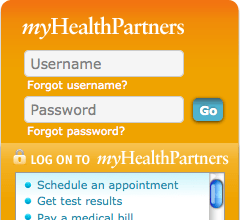The pharmaceutical industry has been slower in adopting new technology and processes than many other industries, preferring a more cautious approach. But stagnation is not an option. As healthcare technology evolves and as people seek alternative treatments, pharmaceutical companies recognize the need to adapt. Here’s how the industry is changing.
6 Trends Transforming the Pharmaceutical Industry
Most industries are switching to innovative and fast efficient systems to deliver better products and services. The pharmaceutical industry is doing the same by embracing the following trends.
1. Better Data Management
With the thousands of drugs on the market, new drug research, clinical trials, and a list of clients a mile long, imagine how much data the pharmaceutical sector generates. Archaic database systems simply can’t manage the massive volume of data.
Big data has exploded over the last two decades and pushed data science and artificial intelligence to a new level. For pharmaceutical companies, automation and better data management helps speed up drug development, shorten clinical trials, target specific populations or patients more effectively, and analyze data more efficiently.
2. Introducing Blockchain
Pharmaceuticals is a $1.25 trillion dollar industry. That’s a lot of money changing hands. The industry is now embracing blockchain technology to maximize transaction security.
In addition, the industry is also exploring using blockchain in the following ways:
- Accelerating data mining.
- Serialization of drugs.
- Storing patient data safely.
- Streamlining supply chain management.
- Sharing confidential data between pharma companies, research and academic institutions, regulatory bodies, and the medical community.
- Protecting intellectual property and trade secrets.
With so many benefits and applications, blockchain is a game changer for pharmaceutical companies.
3. Accepting Medical Marijuana
Cannabis has been the nemesis of Big Pharma for years. The trend towards using cannabis to treat illness was not good news for Big Pharma as it threatened their revenue. Initially, they were vehemently opposed to it.
Scientists and the medical community have investigated the benefits of medical marijuana for a few years. They’ve concluded that medical marijuana does appear to have certain therapeutic effects in the treatment of certain conditions and as a pain reliever.
Spotting an opportunity to make money, Big Pharma is now shifting its stance on medical marijuana and investing heavily in cannabis research. As regulations around medical marijuana ease, pharmaceutical cannabis is predicted to grow exponential in the coming years.
4. Precision Medicine
Precision medicine takes a personalized approach to a patient or small group of patients. Based on the principle that each person’s body is different and reacts diffrently to illness and medication, individualized medication is produced taking into account a patient’s symptoms, age, sex, medical history and health conditions or comorbidities.
While small batches of drugs are more expensive to produce, precision medicine is a trend that is growing in appeal and attracting investors who see it as the next big thing in medicine. To lower costs, pharmaceutical companies are looking at using additive manufacturing.
Additive manufacturing uses 3-D printing to quickly produce personalized pills that contain a specific dosage and formulation. The drug can even be designed to have a staggered release in the body or to be triggered remotely.
Hospitals could use it in emergency medicine. Rather than hold large drug inventories or run out of a drug during an emergency, they could produce a drug as and when required.
5. Integrative Medicine
Integrative medicine, also called complementary medicine, is a holistic approach to healthcare that combines conventional medicine with alternative therapies.
Traditional medicine focuses primarily on using drugs to treat symptoms. Alternative therapies use natural remedies and some practitioners discourage the use of drugs. Integrative medicine focuses on both to improve health and facilitate healing.
As the benefits of alternative therapies become more evident, many medical practitioners are incorporating both forms of therapies in their treatment of patients. Doctors who practice integrative medicine believe in treating the whole person — mind, body and spirit — not just the disease.
As the trend towards integrative medicine grows in the medical community, pharmaceutical companies are recognizing that they can no longer sideline complementary medicine and are starting to support the movement.
6. Growth in Leadership Roles
All the change and innovation in the pharmaceutical industry is creating a need for more leadership in the sector. Leadership roles are emerging to drive innovation and facilitate disruptive transformation. Leadership positions are in administration, information technology, marketing, advocacy, and at executive level.
Internal leadership is also required to implement new technologies and steer organizations through transformational processes. External leadership is needed to build trust and a positive reputation with the public.
The pharmaceutical industry is large and extends to hospitals, medical practices, healthcare organizations, science and research institutions, technology companies, insurance companies, regulatory bodies, and government structures. This vast network needs cross-collaboration and skilled leaders who can identify suitable partnerships and build relationships.
By breaking out of its comfort zone and pushing boundaries, we’re sure to see some groundbreaking change sweeping across the industry over the next decade.







